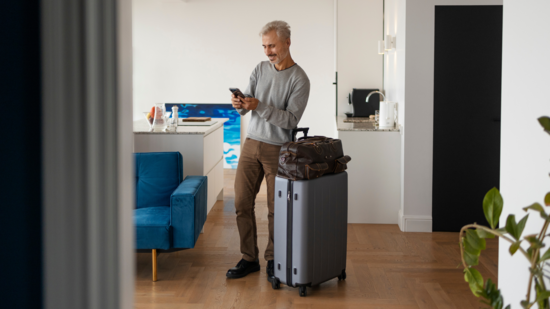Haemorrhoidal problems often occur when we're travelling because sitting for long periods in uncomfortable positions (in a car or on a plane for instance) can restrict blood flow in the anal region. This is further aggravated by inconsistent meal and toilet routines, which may result in constipation or diarrhoea. Not moving enough, dry air in aircraft, and not taking in enough fluids can all make symptoms worse.

Preparing for travel with anal discomfort
Healthy eating habits even on the go
When travelling, make sure you eat a high-fibre diet and drink enough fluids to prevent constipation and keep your stools soft. Spicy or greasy meals should be avoided as they irritate the bowels and exacerbate the symptoms.
Keep moving
During long journeys, make an effort to stand, stretch, and take short walks regularly to improve circulation and reduce pressure on the anal area. Whenever possible, elevate your legs occasionally to improve blood flow in the lower body and lessen the strain on the haemorrhoids.
Nothing is more important than maintaining good hygiene
After a bowel movement, gently cleanse the anal area with medical wipes or moist, unscented wipes to help prevent skin irritation. Then dry with toilet tissue.
Travel first aid kit
Talk to your trusted pharmacist or chemist about which products to include in your travel first aid kit. Ointments, suppositories and medical wipes developed specifically for the treatment of haemorrhoidal complaints come in very useful. Hand sanitiser is another great item.
Help prevent and alleviate discomfort
Practical advice and inspiration to help prevent haemorrhoids and ease the discomfort they cause.



